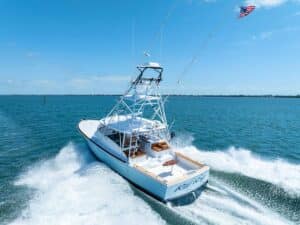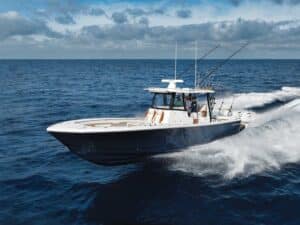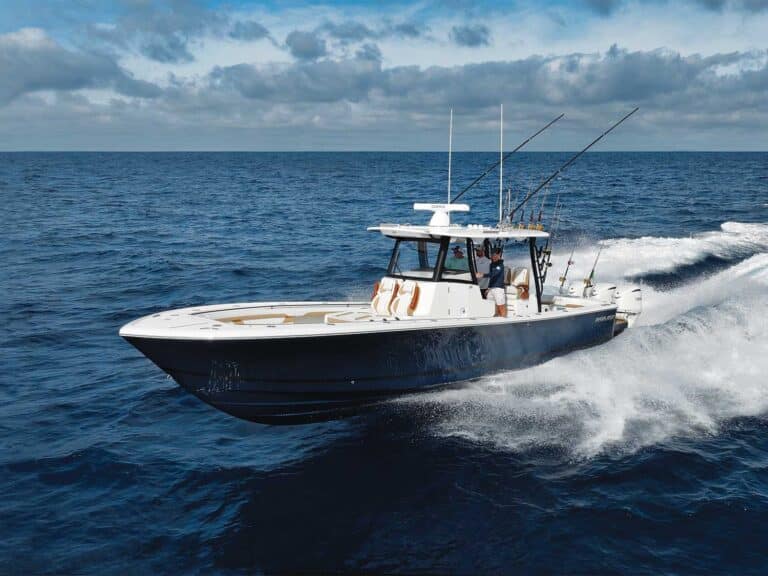
While I have previously written about the value of yacht brokers, there are certain scenarios where an owner might sell their vessel without the assistance of one. For-sale-by-owner listings are especially common with vessels of lesser size and complexity, such as center-consoles and smaller sport-fishers or cruising vessels. Such listings have become more common in certain markets due to the emergence of various online resources to nonbrokers that allow an owner to effectively reach potential buyers. An owner might also simply be approached by a potential buyer when the vessel is not formally on the market. In the event that a broker is not involved, buyers and sellers will benefit from having a basic understanding of the purchase and sale process and should utilize those resources at their disposal, both before and after closing.
The Offer
The purchase and sale procedures should remain the same regardless of whether a broker is involved. Generally, the FSBO process is started by a prospective buyer presenting a written offer to the seller. In my opinion, the parties should always have a written contract with a minimum of the basic terms and conditions, including proper party names, vessel information, purchase price, delivery location, buyer’s survey and sea-trial options, as well as relevant dates with language detailing both the buyer’s and seller’s defaults.
Watch: Check out Wall Hanger, the 63-foot waterjet-powered Spencer Yacht, in this video review.
A prospective buyer typically agrees to provide some form of a deposit, with 10 percent of the purchase price being the industry standard. Ideally, the deposit is held in escrow by a third party when a brokerage is not involved. The parties should consider hiring a maritime attorney to draft a proper agreement, hold the deposit funds in escrow, and quarterback the transaction—especially if the vessel is of considerable value. Vessel owners might be surprised by how affordable these legal services are in most scenarios.
Proper vessel purchase agreements should specify something known as an “accept/reject” date, by which a buyer must perform inspections, surveys and sea trials, and either accept or reject the vessel. Brokers can certainly add substantial value during this part of the process because they typically have relationships with numerous surveyors, dealers, vendors and contractors throughout the industry. Ideally, the buyer has previous experience with a particular hull surveyor or a friend who can provide a recommendation, but if not, then surveyors can be found using an online search feature available through the Society of Accredited Marine Surveyors or the National Association of Marine Surveyors. An ideal place to look for a mechanic who can perform engine surveys is a local dealer in the area where the vessel is located.
Read Next: Find out if your next boat is insurable before you sign on the dotted line.
Closing
A buyer must accept or reject a vessel subsequent to surveys and sea trials. Upon written acceptance, the parties should move toward closing. This is the part of the process where the seller, depending on the terms negotiated, might be required to repair certain items revealed in the survey, and the buyer should be finalizing items such as financing, insurance and entity formation, as relevant. Again, brokers are typically a fantastic resource for many of these items, but maritime attorneys, captains and other professionals in the industry can also lead a buyer in the right direction when a broker is not involved in the transaction. Lenders typically handle the vessel’s documentation subsequent to closing, but if the buyer is not financing the purchase, documentation agents and maritime attorneys are both a good resource to handle the necessary paperwork and filings.
The reality is that every vessel transaction is different in its own way. We often assist parties who are purchasing or selling their vessel without a broker. Buyers and sellers should take advantage of the resources available to them throughout the entire process of a vessel transaction. Misinformed parties can be taken advantage of, causing the entire buying or selling experience to become more stressful and expensive, both in the long and short term.
Raleigh P. Watson is a contributing author, and a Partner at Miller Watson Maritime Attorneys. This article originally appeared in the December 2021 print issue of Marlin.







